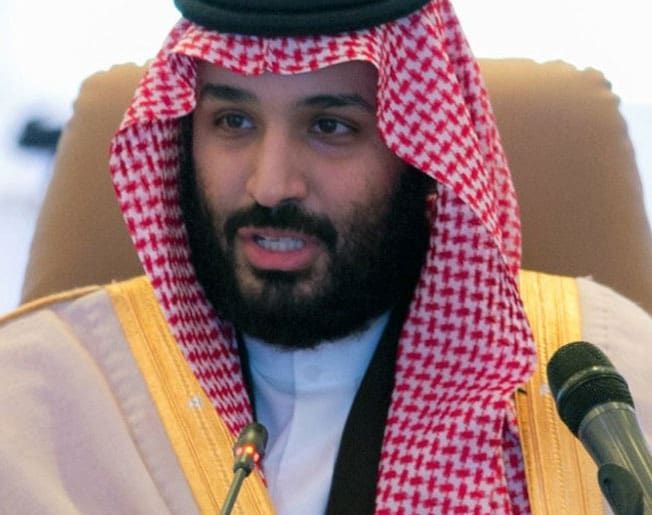The Khashoggi murder raises questions about a Saudi Bomb
By John Mecklin | November 23, 2018
 Saudi Crown Prince Mohammed bin Salman, in 2017
Saudi Crown Prince Mohammed bin Salman, in 2017
In a story that migrated off the New York Times’ home page far too quickly, David Sanger and William Broad asked a searingly important question that has yet to seize the world imagination: Can Saudi Arabian leaders be trusted with the means to create nuclear weapons? The Times article, “Saudis Want a US Nuclear Deal. Can They Be Trusted Not to Build a Bomb?”, focuses on a continuing US intelligence effort to determine whether the assumed next king of Saudi Arabia, 33-year-old Crown Prince Mohammed bin Salman, has been “laying the groundwork for building an atomic bomb” while negotiating the terms of a nuclear cooperation agreement with the United States.
Such a “123 agreement” (named after a section of the US Atomic Energy Act of 1954) would impose a set of nonproliferation criteria on Saudi Arabia if it were to use US technology and equipment in its nascent nuclear program. But, Sanger and Broad write, “there is a hitch: Saudi Arabia insists on producing its own nuclear fuel, even though it could buy it more cheaply abroad, according to American and Saudi officials familiar with the negotiations. That raised concerns in Washington that the Saudis could divert their fuel into a covert weapons project—exactly what the United States and its allies feared Iran was doing before it reached the 2015 nuclear accord, which President Trump has since abandoned.”
The Washington Post recently reported that US Central Intelligence Agency has concluded that the Saudi crown prince, sometimes known as MBS, ordered the bizarre October assassination and butchering of Post contributor Jamal Khashoggi in the Saudi consulate in Istanbul. In their article, Sanger and Broad suggest that “lurking behind” the 123 negotiations “is the question of whether a Saudi government that assassinated Mr. Khashoggi and repeatedly changed its story about the murder can be trusted with nuclear fuel and technology.”
Legitimate as that question may be, it understates the degree to which experts are concerned about Saudi Arabia’s plans for a massive nuclear power program, and the prospect it might be used as a front for the creation of a Saudi Bomb. Here is a quick overview of some of that concern, as expressed in the Bulletin recently:
No to a permissive US-Saudi nuclear deal
By Victor Gilinsky, Henry Sokolski, February 22, 2018
US-Saudi civil nuclear negotiations: finding a practical compromise
By Robert Einhorn, January 12, 2018
Nuclear power’s weapons link: Cause to limit, not boost exports
By Victor Gilinsky, Henry Sokolski, September 20, 2018
Publication Name: New York Times
To read what we're reading, click here
Together, we make the world safer.
The Bulletin elevates expert voices above the noise. But as an independent nonprofit organization, our operations depend on the support of readers like you. Help us continue to deliver quality journalism that holds leaders accountable. Your support of our work at any level is important. In return, we promise our coverage will be understandable, influential, vigilant, solution-oriented, and fair-minded. Together we can make a difference.
Keywords: Saudi Arabia
Topics: Nuclear Energy, Nuclear Risk, Nuclear Weapons, What We’re Reading
















The New York Times report on the US negotiations with KSA over a 123 Agreement has an odd note that there is a potential deal for commercial reactors with Westinghouse licensed to South Korea. A quick look at the source shows it is based on a 2013 report by WNA that has long since been overtaken by events. In any case it is not plausible that South Korea would give up export earnings for a KSA deal that involved Westinghouse. My full report here https://neutronbytes.com/2018/11/23/no-progress-in-123-agreement-negotiations-with-ksa/